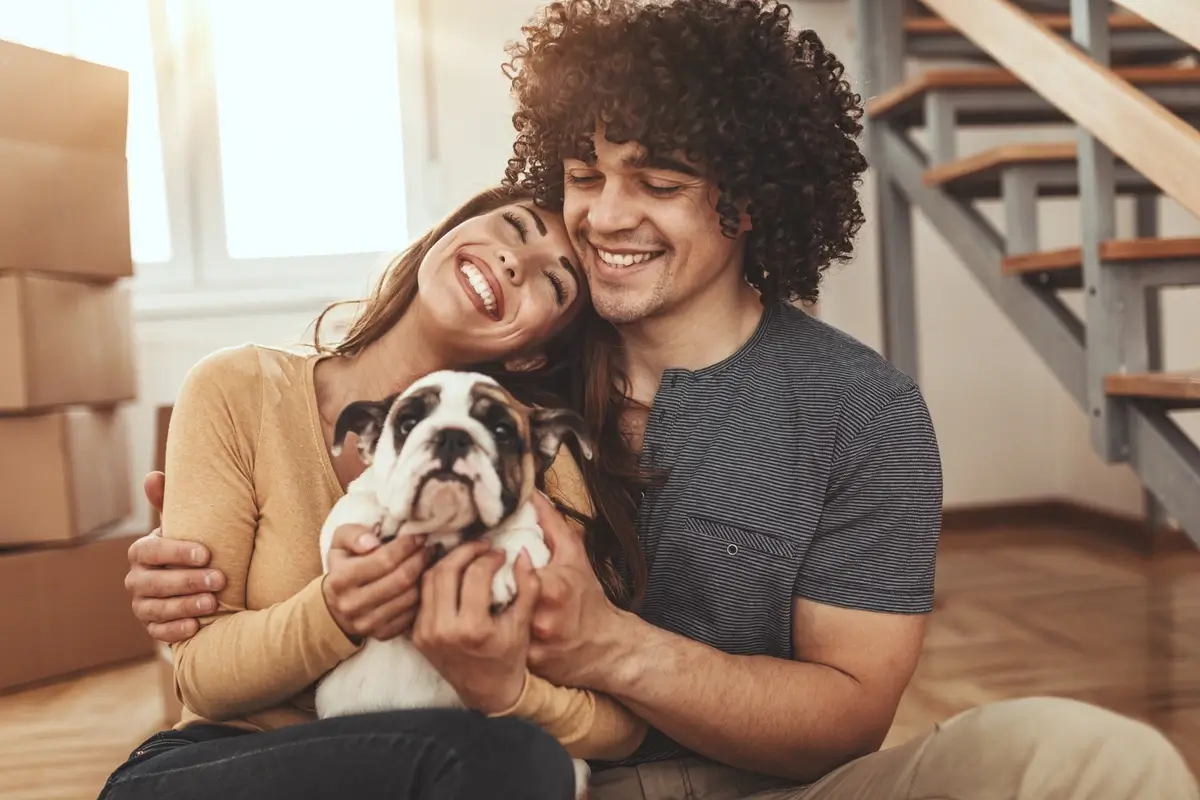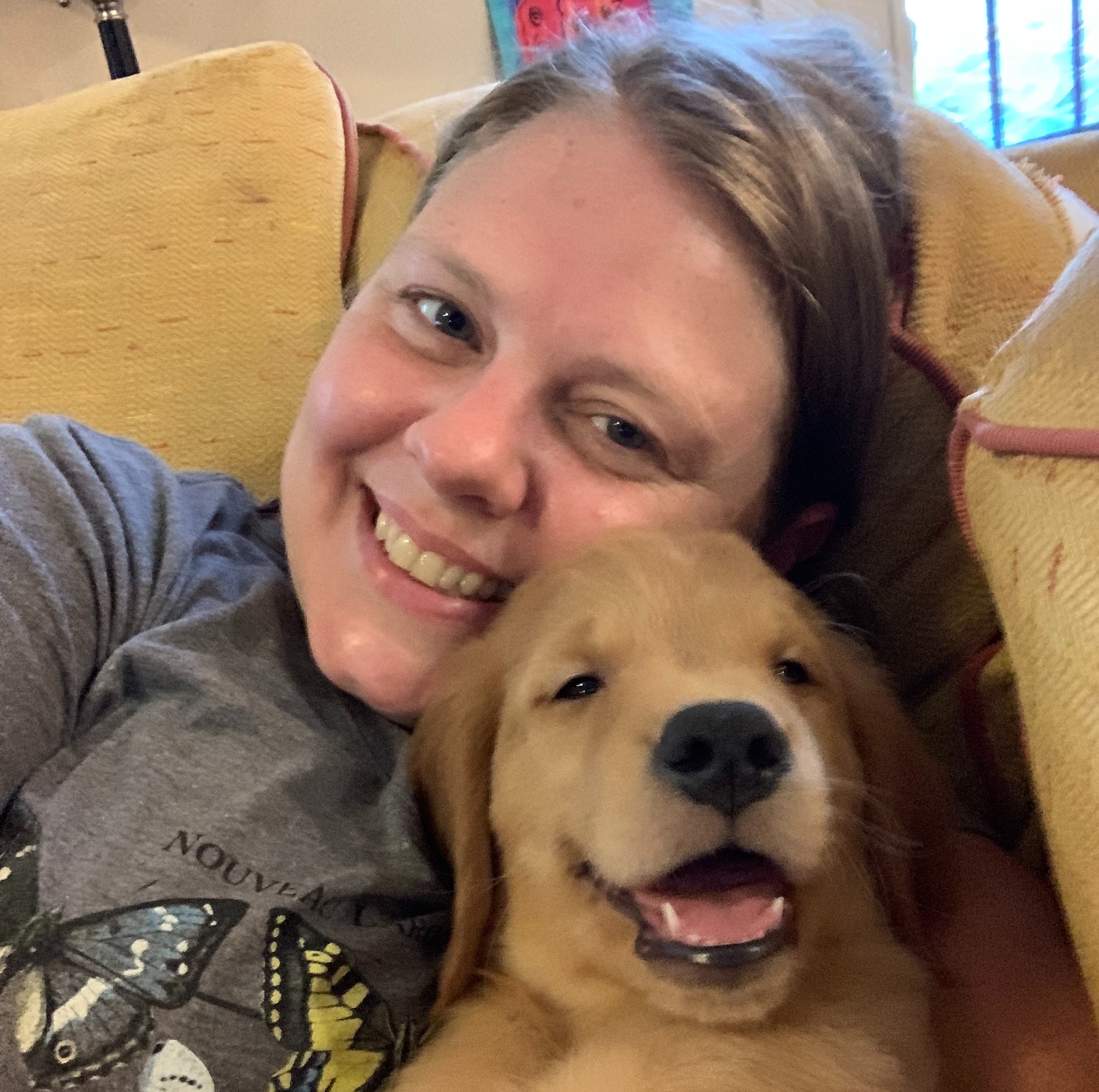You’ve searched high and low for the right furry companion to join your household. You have imagined the day your puppy will be snuggled lovingly in your arms while you gaze into your puppy’s eyes. As you dream about all the fun you’ll have, you’re filled with excitement and hope…but now what? While you are looking for your forever friend, here are some factors to consider before a puppy becomes your lifelong companion.
Establish a Vet Relationship
The very first place you need to take your new puppy other than your home will be to a veterinarian. Your puppy will need necessary vaccinations and dewormings and receive a nose-to-tail examination. You’ll then establish a regular checkup and vaccine schedule to keep your dog healthy. The next check-ups will occur around every month after the initial visit until about 16 weeks. After this time period, you’ll probably visit around once a year for well checks and for any issues or illnesses that may pop up.
You might not know where to begin when choosing the right veterinarian for your puppy, and you may experience decision fatigue since you may have several options around you. Here’s how to begin the process of choosing a veterinarian.
Start with friends and family
Start with asking for recommendations from your neighbors and local friends who own dogs. They’ll be able to tell you both the good experiences they’ve had as well as less-than-ideal encounters. You’ll hear some of the same names repeated either way, so pay attention to the overall satisfaction rather than relying on one person’s experience.
Go online
If friends and family have helped you narrow down your choice, you may want to start with a quick online search. You’ll find lots of reviews and ratings featuring specific details other than the number of stars with no comments or short, vague comments like “Great service!” or “Avoid at all costs!” If you’re a member of local social media groups, you will definitely get a variety of opinions. You may even find opportunities for playdates along the way.
Convenience
Consider your personal schedule. Are you looking for the closest vet to your house, or are you willing to drive a bit further? Is it easy to get an appointment? Does the vet keep regular business hours, or do you need one with evening and weekend hours? What is the process for emergency after-hours visits? Do they offer same-day appointments for situations requiring immediate attention but not intense enough for an emergency vet visit? Do they also offer boarding opportunities for when you go out of town? Perhaps you prefer if the vet has a solid online presence or even an app where you can make appointments, ask questions, and easily access records. You’ll want to think about what fits you and your family best since you’ll be going to the vet as part of your regular routine.
Personal Experience
Now that you’ve chosen a convenient vet office that comes highly recommended, trust your instincts on the impressions you get during your first few visits. Is the facility clean and brightly lit? Is the staff helpful and pleasant? Did you feel the vet techs and veterinarian thoroughly answered any questions you had? A good vet will also offer advice on choosing food and other important information regarding your puppy’s health beyond just giving vaccinations.
Stick to a Routine
Perhaps the most crucial component of living with a dog is establishing a routine that works for your family. Decide which family members will be responsible for chores such as feeding, walking, potty training, cleaning up after messes, and behavior training, so everyone in your household is on board. And above all, have lots of patience and give out praise! Think about how your days and nights will go, as puppies need lots of attention and structure. Those first few nights may be rough as your new puppy adjusts to a new place and being away from mama and littermates.
Some questions to ask yourself about your home environment and routine:
- Will you use a crate, pen, or special area? When will the pup stay in the area?
- How will you potty train?
- Where will the dog be sleeping? Do you have a nap schedule in mind?
- How frequently will the puppy be eating, and where will that spot be?
- What type of exercise is needed to keep your pup healthy?
- Are there other animals in the household, and are they all on the same schedule?
- Will your pup be taking trips outside the home, and how does the dog do in the car?
- Is your home free from floor clutter (no sock is safe!), and are dangerous foods like chocolate, grapes, and xylitol carefully stored away, eaten, and cleaned up?
- Do you have other pets or young children that will need an introduction, or are you planning on introducing the dog to a new baby in the future?
- Will your puppy be allowed on the furniture?
- How frequently will you need to vacuum if your dog is a shedder?
- How will you handle encounters like thunderstorms, fireworks, visitors, vacuums, trash collectors, loud yard equipment, boisterous children, and mail carriers?
- What methods will you use to behavior train your dog?
Speaking of Training…
It’s crucial that you train your puppy to be a fantastic, well-behaved member of the family. No one enjoys being knocked over by a dog who wasn’t taught any manners, and an untrained dog can be a danger to itself, other people, and other animals. Avoid mishaps by finding the appropriate training style to help your dog thrive! Once your puppy is fully vaccinated and ready to mingle, check out puppy obedience classes, intensive boarding training, specialty training like hunting or agility, and opportunities for socialization via meet-ups, dog parks, and local events to help your puppy make new friends and learn how to navigate any situation.
Check Laws and Requirements
Depending on where you live, your town, county, or state will have laws and requirements regarding registration, licenses, vaccinations, or special tags for your dogs. In addition, there may be leash laws, limits on how many dogs you can own, leaving a dog in a car (even with windows down or air conditioner running) or outside a store while you run inside, and guidelines for dog behavior in municipalities and dog parks.
Out and About
Beyond government requirements, check into local places to see if (and how) they allow non-service pups. Some businesses allow you to shop with any kind of well-behaved dog. Others that allow dogs will only want small dogs. The majority of businesses will have a strict no-pet policy, so do not disregard policies by sneaking in a puppy in a purse! If you want to dine with Fido, see which eating and drinking establishments allow non-service animals and if they’re only welcomed on the patio or are allowed inside. As always, make sure your dog can handle being around strangers and various food smells because no one wants a table surfer snatching their food, knocking into a server, or fighting with other dogs.
If you love to travel, you’re in luck because you can find all sorts of accommodations that are pet-friendly! The key is proper preparation. It’s easy to do a quick search on sites made just for finding places that welcome your four-legged friend. Do your research before you start your journey, as it’s stressful to find a suitable location along the way.
The most important thing to keep in mind when traveling with your pet is to know your puppy. Can your little one handle being in an unfamiliar place, especially if you leave the dog to go do an activity? Is your dog well-behaved? Will the trip cause unnecessary stress on your pup that will affect other people trying to have a relaxing vacation?
Don’t try to sneak in an animal because it never ends well. Pay any extra fees associated with your pet and know what the contract states, whether that’s an up-front pet fee or damage fees. Accidents can happen, so clean up your messes and know how to access cleaning supplies. Don’t just leave an unwelcome surprise for the next guests, the owner, or housekeeping! If you travel responsibly with your puppy companion, you’ll make some fantastic memories that will last a lifetime!
Residential Stipulations
Your neighborhood or HOA will definitely have pet protocols, so know these to avoid a fine or before you accidentally make any neighborhood enemies. For example, pay attention to when and where to allow your dog to use the bathroom, as some neighbors do not want urine spots in their yard. And of course, always pick up your dog’s poop no matter where you are! What is the local protocol if your dog keeps wandering into someone’s yard or getting into their trash repeatedly, let alone causing unwanted damage to the property or injuries to other dogs and humans? How about lunging at or injuring another dog or person on a walk? What happens if an unruly dog causes harm to your dog when at the neighborhood-owned dog park? It’s always good to know stipulations and procedures so you can both correct the behavior and understand the consequences.
If you are renting a place or getting ready to move somewhere new, you should have already checked the pet policy. A pet policy will include how many animals, weight limits, certain breed restrictions, situations like dog fights and excessive barking, and damage clauses. Never try to get around these policies, as you should be prepared to be a responsible pet owner. Consequences could include problems with your neighbors, trouble with your landlord, the authorities, and even facing eviction!
If you are all set, it’s always a good idea to take pictures of how your home looks before your dog arrives to handle any future discrepancies when you move out. Make sure you pay your pet fees in a timely manner. Be prepared to handle any damage your dog may cause, especially puppies who are potty training and love chewing on baseboards or clawing doors. Doggy gates can also ruin floors and walls. Landlords may also require keeping a neat yard with no dirt patches caused by pacing dogs, urine-stained spots on the grass, or ban tie-outs.
Microchip Your Pup
No matter where you reside, the most important thing to do is microchip your dog in case your pup decides to go exploring! A microchip is a device no bigger than a grain of rice inserted under the skin. Microchips can be scanned to discover the pet owner’s information, but you’ll have to register the chip with a current address and phone number. Find out what the local process is when a dog is taken into custody by animal control just in case your dog is lost. It’s also a good idea to know about online area lost and found sites or local social media groups to post and monitor your lost pet.
Other Questions to Think About
- Do you have a breed that needs to be groomed frequently?
- Are you interested in a doggy daycare?
- Which toys are best and safest for your breed?
- Other than the vet, who can you count on if you need to handle a pet emergency?
- Where will your furry friend stay when you go out of town?
- Will your dog need pet insurance?
Find Your Perfect Puppy at Pawrade
Adding a puppy to your life can be exhilarating and rewarding, and it’s important to have answers to these questions right away. With proper preparation, you’ll have an arsenal of knowledge as these needs pop up. We offer happy, healthy puppies for any lifestyle from pre-screened, hand-picked breeders, so search our available puppies for sale to find your new best friend!

